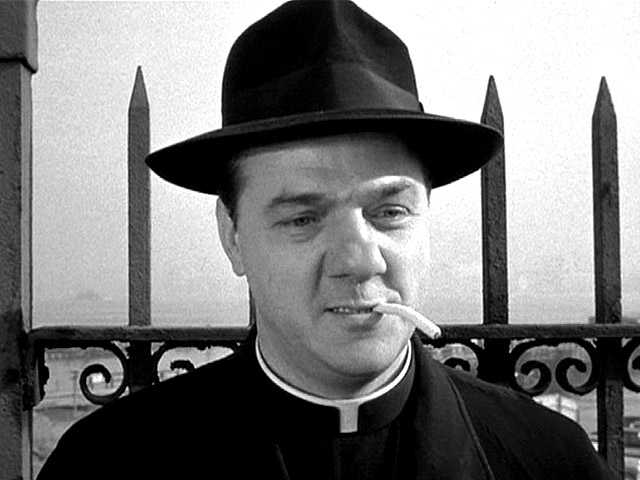Showing @ Filmhouse, Edinburgh, Thu 02 May
Elia Kazan / USA / 1954 / 108 min
Elia Kazan’s On the Waterfront is a classic of American realism cinema. More than anything else, it is hailed for Marlon Brando’s portrayal of a gangster boss’ remorse-ridden protégé, which earned him his first Academy Award. But while his unequalled performance is undeniably the film’s biggest asset, it should not eclipse it’s other merits. From the able cast (including Eva Marie Saint in her on screen debut) to the well thought-out costumes, On the Waterfront is in all respects outstanding.
The New York docks are in the hands of Johnny Friendly (Lee J. Cobb) and his clique of cigarette-smoking, pinstripe-suit-wearing mobsters, posing as a union but in reality repressing the scared workers. Terry Malloy (Brando) enjoys ‘uncle’ Johnny’s favour as the kid brother of his right hand man but when he unwittingly becomes an accessory to murder, he starts to question the morals that drive him, especially when the victim’s sister Edie (Saint) turns to him for help. Could the right decision not only win him Edie’s love but also end the mob’s rule over the docks?
As one of the last surge of movies produced before colour inevitably conquered the cinema, On the Waterfront paints the shabby alleyways and seedy pubs in gloomy black-and-white. The deliciously dated look is contrasted with the surprisingly progressive female lead, on a quest to find her brother’s murderer in a suffocating patriarchal society. The obligatory damsel-in-distress moments, (which are many a fifties film’s pitfall) are alternated with Edie’s attempts to protect bad-boy-with-a-soft-core Terry. But no matter how alluring, the film is more than a mere romance. The portrayal of a powerful few repressing a deaf and dumb mass resonates in Occupy’s 99 percent slogan, proving the production’s timeless significance. As long as supposedly impeccable politicians and guiltless bankers are around, this narrative about personal responsibility will not go out of date.
